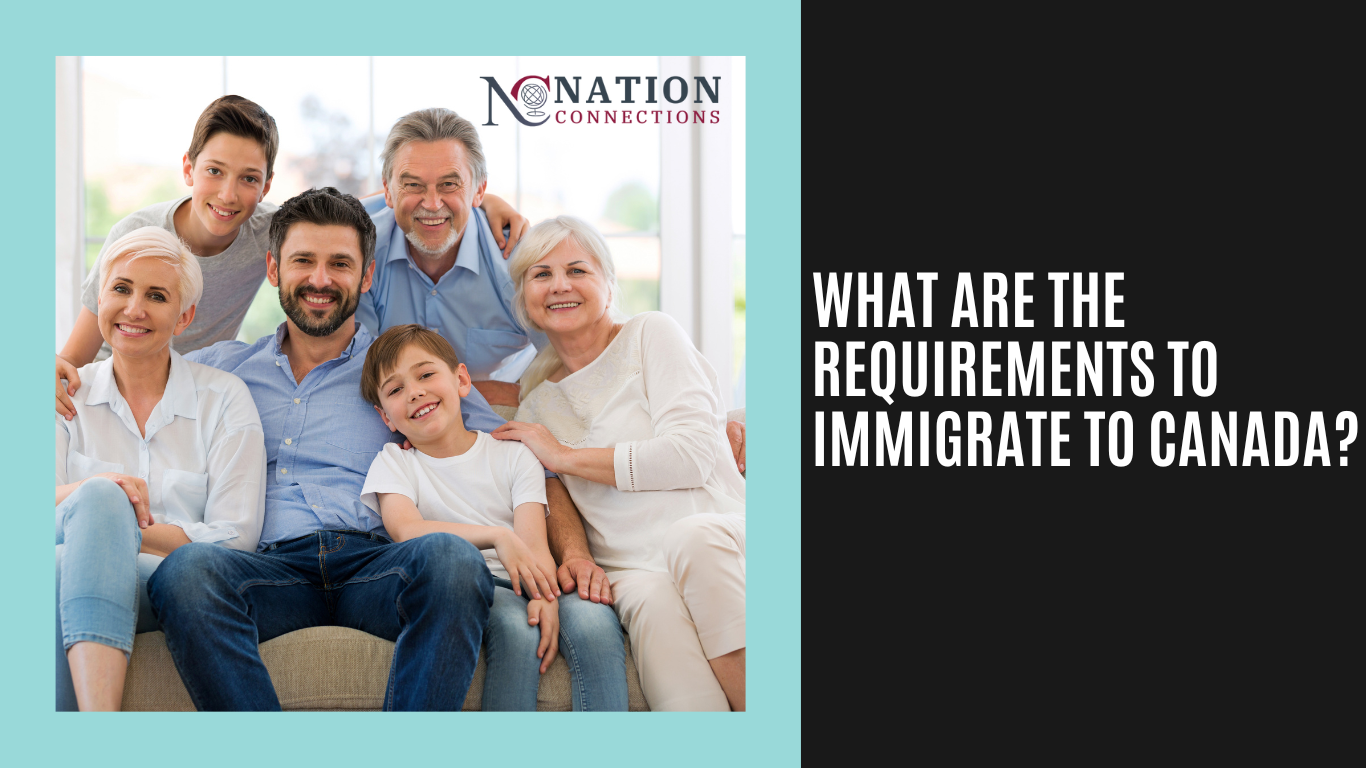Immigrating to Canada is a dream for many due to its high quality of life, strong economy, diverse culture, and inclusive policies. The Canadian government offers various immigration pathways tailored to different types of applicants, including skilled workers, entrepreneurs, and family members of Canadian residents. Below, we explore the main pathways to immigrate to Canada and the general and specific requirements for each.
Main Pathways to Immigrate to Canada
- Express Entry
- Provincial Nominee Programs (PNPs)
- Family Sponsorship
- Quebec-Selected Skilled Workers
- Start-up Visa
- Self-Employed Persons Program
- Atlantic Immigration Pilot Program
- Rural and Northern Immigration Pilot
General Eligibility Criteria
While specific requirements vary by program, there are some general criteria that most applicants must meet:
- Age: Applicants must typically be at least 18 years old. Age can affect eligibility and scoring in points-based systems, with younger applicants often receiving more points.
- Education: A minimum of a high school diploma is usually required, though higher educational qualifications can significantly improve your chances.
- Work Experience: Relevant work experience is critical, particularly for skilled worker programs.
- Language Proficiency: Proficiency in English or French must be demonstrated through standardized tests such as IELTS or TEF.
- Health and Character: A medical examination and police certificates are required to prove the applicant has no criminal record and is in good health.
- Proof of Funds: Applicants must show they have enough money to support themselves and their family after moving to Canada.
Express Entry
Express Entry is a points-based system used to manage applications for three federal economic immigration programs:
- Federal Skilled Worker Program (FSWP)
- Federal Skilled Trades Program (FSTP)
- Canadian Experience Class (CEC)
Requirements:
- Age: No specific age limit, but age affects the Comprehensive Ranking System (CRS) score.
- Education: Educational Credential Assessment (ECA) to verify foreign education.
- Work Experience: At least one year of skilled work experience in the past 10 years for FSWP; two years for FSTP.
- Language Proficiency: Minimum Canadian Language Benchmark (CLB) level 7 for FSWP, level 5 for FSTP.
- Proof of Funds: Sufficient funds to settle in Canada, unless you have a valid job offer or are applying under the CEC.
Provincial Nominee Programs (PNPs)
Provincial Nominee Programs allow provinces and territories to nominate individuals for permanent residence based on local labor market needs.
Requirements:
- Nomination: Must receive a nomination from a province or territory.
- Intention to Reside: Must intend to live in the nominating province.
- Skills and Experience: Specific skills, work experience, and education required by the province.
- Language Proficiency: Varies by province, but generally, you need to demonstrate proficiency in English or French.
Family Sponsorship
Canadian citizens and permanent residents can sponsor close family members for immigration.
Requirements:
- Sponsor Eligibility: Must be a Canadian citizen or permanent resident aged 18 or older.
- Relationship: Spouse, common-law partner, dependent children, parents, grandparents, or certain relatives.
- Financial Ability: Must demonstrate the financial ability to support the sponsored family member.
Quebec-Selected Skilled Workers
The Quebec-Selected Skilled Workers program is for those who want to live and work in Quebec.
Requirements:
- Application to Quebec: Must apply to the Quebec government for a Quebec Selection Certificate (CSQ).
- Education and Work Experience: Must meet specific educational and work experience criteria.
- Language Proficiency: Proficiency in French is essential.
- Financial Stability: Must prove financial stability for the first few months in Quebec.
Start-up Visa
The Start-up Visa program is for entrepreneurs who have the skills and potential to build businesses in Canada.
Requirements:
- Business Support: Must secure a letter of support from a designated organization.
- Ownership: Must own a significant portion of the business.
- Language Proficiency: Minimum CLB level 5 in English or French.
- Funds: Must show sufficient settlement funds.
Self-Employed Persons Program
This program targets individuals who can become self-employed in Canada, particularly in cultural or athletic fields.
Requirements:
- Experience: Relevant experience in cultural activities or athletics.
- Intention: Must intend and be able to become self-employed in Canada.
- Language Proficiency: Proficiency in English or French.
- Funds: Must show sufficient funds to support yourself and your family.
Atlantic Immigration Pilot Program
This program helps employers in Atlantic Canada hire foreign skilled workers who want to immigrate to Atlantic Canada.
Requirements:
- Job Offer: Must have a job offer from a designated employer in Atlantic Canada.
- Education: Minimum of a high school diploma.
- Language Proficiency: Minimum CLB level 4 in English or French.
- Settlement Plan: Must show a settlement plan for yourself and your family.
Rural and Northern Immigration Pilot
This community-driven program aims to spread the benefits of economic immigration to smaller communities.
Requirements:
- Job Offer: Must have a job offer from an employer in one of the participating communities.
- Community Recommendation: Must receive a recommendation from the community.
- Work Experience: At least one year of relevant work experience.
- Language Proficiency: Minimum CLB level 6 in English or French.
- Education: High school diploma or higher.
- Proof of Funds: Sufficient funds to support yourself and your family.
Conclusion
Immigrating to Canada involves meeting various requirements depending on the immigration pathway you choose. Whether you’re a skilled worker, entrepreneur, or have family in Canada, there are multiple options available. It’s essential to understand the specific requirements and prepare your application meticulously to increase your chances of success. For the most accurate and up-to-date information, consulting with an immigration expert or visiting the official Immigration, Refugees and Citizenship Canada (IRCC) website is recommended.





